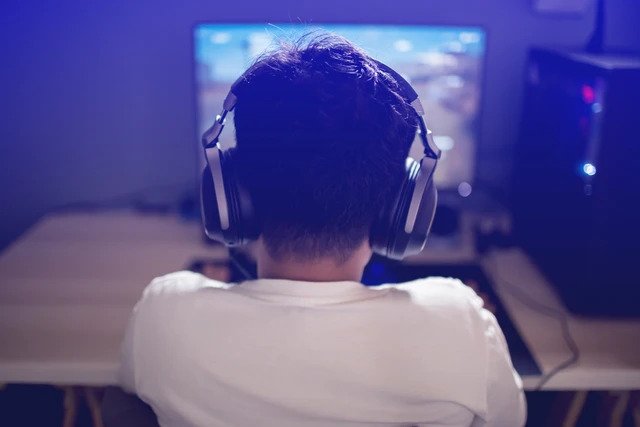Pathological gambling
According to the Institute of Mental Health (Bach Mai Hospital), in medicine, gambling disorder (pathological gambling, gambling addiction) is a repetitive gambling behavior that leads to problems for individuals, families and society.

Addiction to gambling, betting, and games of chance can be a mental disorder, similar to substance addiction (alcohol, drugs).
Dr. Le Thi Thu Ha, Head of Department M7 (Institute of Mental Health), added that adults and adolescents with gambling disorder have difficulty controlling their gambling and continue even when it causes disruptions in their lives. Gambling addiction or gambling addiction is a mental disorder comparable to alcohol and drug addiction.
Like other addictions, the brain's reward system is disrupted. Gambling addiction is an uncontrollable urge to continue gambling, regardless of the cost of the game and the impact on one's life. The urge to gamble becomes so great that the stress can only be relieved by gambling more and more.
Hospitalized due to gambling addiction, games of chance
Recently, doctors at the Institute of Mental Health received and treated a 34-year-old male patient (businessman), residing in Ky Anh District, Ha Tinh Province, who was brought to the hospital by his family after a period of depression, leaving home to gamble, day and night.
Taking a medical history, the doctors learned that the patient started gambling while he was a university student, mainly betting on football with low frequency and betting amount.
After graduating with a degree in Business Administration, the patient worked for a foreign company for 4 years and had a good income. During this time, the patient gambled more and borrowed money from friends. After that, the patient started his own business due to job loss and divorce.
The patient gambled more, the debt amounted to billions of dong but he continued to borrow money. When bored, stressed or when he had money, the patient left home to go to the internet cafe to play Sic Bo and bet on football.
About 6 months before hospitalization, the patient was tired, lost weight (10 kg/6 months), and was depressed because he lost all social relationships and family due to gambling but still could not stop gambling.
Regarding the relationship between "gambling addiction" and mental health, specialist doctor 2 Bui Nguyen Hong Bao Ngoc, Deputy Head of Department M7, Institute of Mental Health, analyzed: "Like other addictions, the brain's reward system is disrupted. Gambling addiction is the urge to continue gambling, which cannot be controlled, regardless of the amount of money spent on the game and the effects on life".
Studies have found that people with gambling disorders have very high rates of personality disorders (over 60%), emotional disorders (about 50%) and over 40% have anxiety disorders.
For gambling addiction cases, patients are treated with medication, combined with psychotherapy, cognitive behavioral therapy, and brief motivational interventions. After discharge from the hospital, they need to be re-examined and receive a lot of psychological support from their family and therapist.
According to Dr. Ngoc, the only way to prevent "gambling disorder" is to not play, not to indulge in the pleasure of "red - black".
To prevent relapse of pathological gambling, patients need to be isolated from gambling games. In addition, there needs to be a coordinated interest from the family and personal efforts. Patients may need to be treated with methods such as: psychotherapy, brain modulation, combined chemotherapy. After discharge from the hospital, they need to be re-examined and receive a lot of psychological support from the family and therapist.
Signs of gambling addiction
Persistent and problematic gambling behaviour resulting in significant impairment or distress, when 4 (or more) of the following are present over a 12-month period:
The need to gamble with increasing amounts of money to achieve the desired excitement.
Restlessness or irritability when trying to cut down or stop gambling.
Have made repeated successful attempts to control, cut down, or stop gambling.
Often preoccupied with gambling (e.g., having persistent thoughts about reliving past gambling experiences or planning the next adventure, thinking about ways to get money to gamble).
Often gambles when feeling distressed (e.g., helpless, guilty, anxious, depressed).
After losing a gambling bet, it is common to return another day to break even ("chase" the loss).
Lying to conceal the extent of involvement in gambling.
Have jeopardized or lost a relationship or job due to gambling.
Relying on others to provide money to alleviate desperate financial situations caused by gambling.
* Patients and their families can contact the Institute of Mental Health's mental health counseling hotline: 02435765344 - 0984104115, email: [email protected]
(Institute of Mental Health, Bach Mai Hospital)
Source link







![[Photo] Prime Minister Pham Minh Chinh chairs a meeting on the implementation of the Lao Cai-Hanoi-Hai Phong railway project.](https://vphoto.vietnam.vn/thumb/1200x675/vietnam/resource/IMAGE/2025/5/20/0fa4c9864f63456ebc0eb504c09c7e26)

































































































Comment (0)